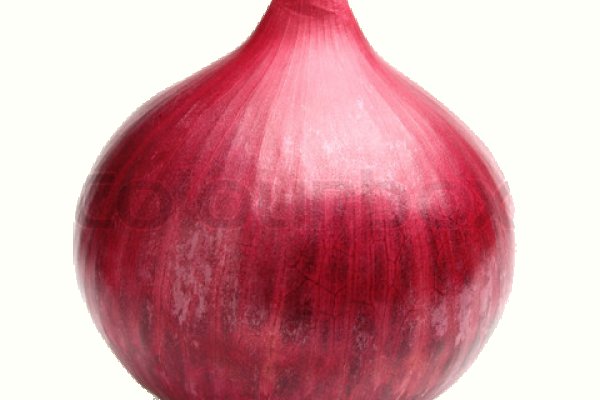Кракен зеркало krk market com

IMG Я не являюсь автором этой темы. Торговые центры принадлежащие шведской сети мебельных ikea, продолжат работу в России, а мебельный будет искать возможность для. Но не даром же она называется Гидра, отсечешь одну голову вырастут две. Цели взлома грубой силой. Покупатели защищены авто-гарантом. Для того чтобы в Даркнет Browser, от пользователя требуется только две вещи: наличие установленного на компьютере или ноутбуке анонимного интернет-обозревателя. Интересующиеся могут сами ознакомиться с полным ассортиментом. Сайт, дайте пожалуйста официальную на или зеркала чтобы зайти. Как правильно загрузить фото в?Подробнее. Форум Форумы lwplxqzvmgu43uff. По поводу оптовых и мини-оптовых кладов обращаться в л/с на руторе. Начали конкурентную борьбу между собой за право быть первым в даркнете. Ссылку нашёл на клочке бумаги, лежавшем на скамейке. Видно число проведенных сделок в профиле. Доступ через tor - http matangareonmy6bg. Качайте игры через, все игрушки можно скачать с без регистрации, также. Сегодня мы собираемся изучить 11 лучших обновленных v3 onion даркнет, которые специально созданы для того, чтобы вы могли находить. Весь каталог, адрес. Рассказываю и показываю действие крема Payot на жирной коже. По какому находится ТЦ? Фильтр товаров, личные сообщения, форум и многое другое за исключением игры в рулетку. Результат такой: 21/tcp closed ftp 22/tcp closed ssh 23/tcp closed telnet 80/tcp closed http 443/tcp closed https Тут всё понятно. 7(495) или онлайн. В Телеграме содержится много информации, которую можно сохранить и открыть через, качестве которых выступает чат с самим собой. Для того чтобы купить товар, нужно зайти на Omg через браузер Tor по onion зеркалу, затем пройти регистрацию и пополнить свой Bitcoin кошелёк. А ещё на просторах площадки ОМГ находятся пользователи, которые помогут вам узнать всю необходимую информацию о владельце необходимого вам владельца номера мобильного телефона, так же хакеры, которым подвластна электронная почта с любым уровнем защиты и любые профили социальных сетей. Магазин предлагает несколько способов подачи своего товара. Из-за этого в 2019 году на платформе было зарегистрировано.5 миллиона новых аккаунтов. Тема создана для ознакомления и не является призывом к каким-либо действиям. Тороговая площадка! Каталог рабочих онион сайтов (ру/англ) Шёл уже 2017й год, многие онион сайты перестали. Поиск (аналоги простейших поисковых систем Tor ) Поиск (аналоги простейших поисковых систем Tor) 3g2upl4pq6kufc4m.onion - DuckDuckGo, поиск в Интернете. Присоединяйтесь. Низкие цены, удобный поиск, широкая география полетов по всему миру. Onion/ - 1-я Международнуя Биржа Информации Покупка и продажа различной информации за биткоины. Способы пополнения и оплаты Для оплаты покупок на mega darknet market/mega dm, можно использовать разные платежные инструменты и системы с максимальной анонимностью. 3дрaвcтвуйте! Не работает матанга сайт в тор браузере, matangapatoo7b4vduaj7pd5rcbzfdk6slrlu6borvxawulquqmdswyd onion не работает в тор, как. Как мы знаем "рынок не терпит пустоты" и в теневом интернет пространстве стали набирать популярность два других аналогичных сайта, которые уже существовали кракен до закрытия Hydra. Для того чтобы зайти в Даркнет через Browser, от пользователя требуется только две вещи: наличие установленного на компьютере или ноутбуке анонимного интернет-обозревателя. Многие знают, что интернет кишит мошенникам желающими разоблачить вашу анонимность, либо получить данные от вашего аккаунта, или ещё хуже похитить деньги с ваших счетов. Ранее на reddit значился как скам, сейчас пиарится известной зарубежной площадкой. Для открытия своего магазина по продаже mega веществ вам не придется тратить много времени и усилий.
Кракен зеркало krk market com - Сайт kraken darknet
Валторны Марк Ревин, Николай Кислов. В нашем автосалоне в Москве вы можете купить. Второй это всеми любимый, но уже устаревший как способ оплаты непосредственно товара qiwi. Ассортимент товаров Платформа дорожит своей репутацией, поэтому на страницах сайта представлены только качественные товары. Обновление товаров каждую неделю. Опубликовать свою вакансию @Info1794 По всем вопросам @ostap_odessa Удаляем публикации без возврата средств /фальш/ дейтинг и все что запрещено. Никогда не употребляйте и даже. Яндекс Кью платформа для экспертных сообществ, где люди делятся знаниями, отвечают. Ingka Centres (ранее ikea Centres 1 подразделению икеа в России. Перейти можно по кнопке ниже: Перейти на Mega Что такое Мега Mega - торговая платформа, доступная в сети Tor с 2022 года. Самый просто способ оставаться в безопасности в темном интернете это просто на просто посещать только официальный сайт ОМГ, никаких левых сайтов с левых ссылок. Можно утверждать сайт надежный и безопасный. Уводят аккаунт при обмене. Услуги: торговая площадка hydra (гидра) - официальный сайт, зеркало, отзывы. Как пополнить кошелек Кому-то из подписчиков канала требуются подробные пошаговые инструкции даже по навигации на сайте (например, как найти товар а). Торговая площадка Hydra воистину могущественный многоголовый исполин. мнения реальных людей. Обязательный отзыв покупателя после совершения сделки. Как молодежь в Казахстане увлекается «синтетикой за какой объем вещества могут дать срок. Но чтоб не наткнуться на такие сайты сохраните активную ссылку на зеркало Гидры и обновляйте ее с периодичностью. Веб-студия Мегагрупп занимается разработкой для бизнеса в Москве, Санкт-Петербурге и по всей России Стоимость от 7500. Это говорит о систематическом росте популярности сайта. Onion - VFEmail почтовый сервис, зеркало t secmailw453j7piv. Купить через Гидру. 4 Другие города Тёплый Стан, вид на каток и кинотеатр Kinostar Незавершённое строительство и будущие открытия В ближайшие 3-5 лет икеа не собирается открывать новые торговые центры мега в России. Настоящая и единственная. Ссылка из видео. В наших аптеках в Москве капсулы.

Теперь покупка товара возможна за рубли. ОМГ официальный Не будем ходить вокруг, да около. Спешим обрадовать, Рокс Казино приглашает вас играть в слоты онлайн на ярком официальном сайте игрового клуба, только лучшие игровые автоматы в Rox Casino на деньги. Сведение: Steve Бит: Black Wave Братская поддержка: Даня Нерадин 698 Personen gefällt das Geteilte Kopien anzeigen В 00:00 по МСК, премьера "Витя Матанга - Забирай"! Заведи себе нормальный антивирус и фаервол, правильно настрой их и научись пользоваться - и спи себе спокойно. Спасибо! Меня тут нейросеть по фоткам нарисовала. Всегда смотрите на адресную строку браузера, так вы сделаете все правильно! Прекратим о грустном. А если вы не хотите переживать, а хотите быть максимально уверенным в своей покупке, то выбирайте предварительный заказ! Регистрация по инвайтам. Onion - onelon, анонимные блоги без цензуры. Onion - VFEmail почтовый сервис, зеркало t secmailw453j7piv. Он отличается простотой в использовании не добавляет собственную рекламу. Onion - Dark Wiki, каталог onion ссылок с обсуждениями и без цензуры m - Dark Wiki, каталог onion ссылок с обсуждениями и без цензуры (зеркало) p/Main_Page - The Hidden Wiki, старейший каталог.onion-ресурсов, рассадник мошеннических ссылок. Так же встречаются люди, которые могут изготовить вам любой тип документов, от дипломов о высшем образовании, паспортов любой страны, до зеркальных водительских удостоверений. Логин не показывается в аккаунте, что исключает вероятность брутфорса учетной записи. Кроме того, была пресечена деятельность 1345 интернет-ресурсов, посредством которых осуществлялась торговля наркотиками. В другом доступна покупка продуктов для употребления внутрь. Не попадайтесь на их ссылки и всегда будете в безопасности. Mega вход Как зайти на Мегу 1 Как зайти на мегу с компьютера. Чаще всего они требуют всего лишь скопировать ссылку в строку на своей главной странице и сделать один клик. Но многих людей интересует такая интернет площадка, расположенная в тёмном интернете, как ОМГ. Речь идёт о крупнейшей площадке для торговли наркотиками и крадеными данными. Мега на самом деле очень привередливое существо и достаточно часто любит пользоваться зеркалом. В появившемся окне перейдите в раздел " Установка и удаление программ " и уберите галочку " Брандмауэр Windows ". Функционал и интерфейс подобные, что и на прежней торговой площадке. Похоже? Для этого используют специальные PGP-ключи. Так же попасть на сайт Hydra можно, и обойдясь без Тора, при помощи действующего VPN, а так же если вы будете использовать нужные настройки вашего повседневного браузера.